FREE Uber Tax Info Pack
FREE 5-Day Email Course to learn the ATO’s Uber tax rules
FREE Uber Expense Spreadsheet so you never miss a deduction
FREE Uber Logbook Spreadsheet to claim your car expenses
FREE ABN & GST Registration (if you need it!)
FREE Uber Tax Info Pack
> FREE 5-Day ‘Uber Tax Essentials’ eCourse
> FREE Uber Bookkeeping Spreadsheet
> FREE Uber Logbook Spreadsheet
> FREE ABN & GST Registration
Is Uber A Taxi Service? – The Great ATO Contradiction.
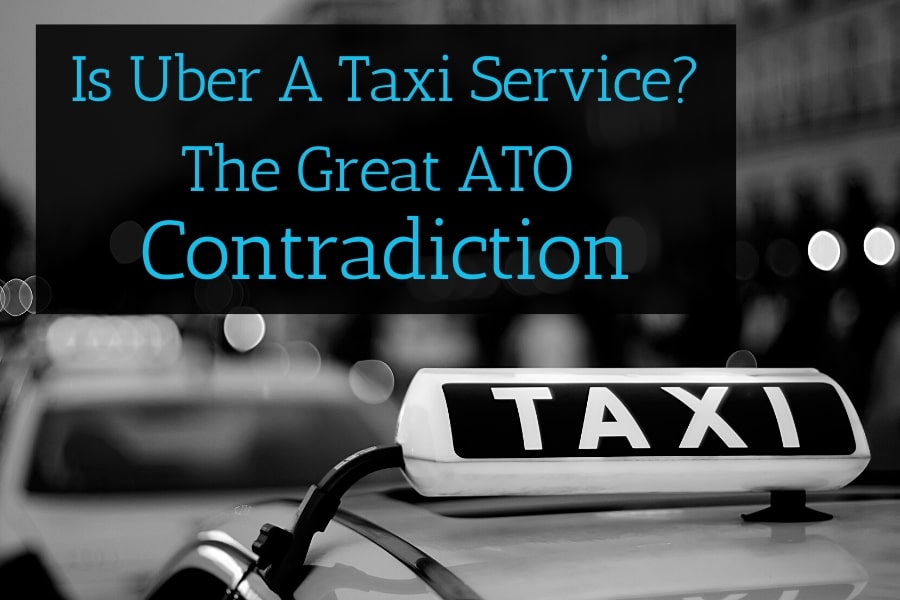
10th July 2019
A recent ATO decision has bought this ongoing debate back into the spotlight: Is Uber a Taxi Service?
Back in 2017 we thought the ATO had made up their minds. In a courtroom challenge by Uber, they determined that under GST laws, Uber met the definition of a taxi service. As a result, Uber drivers are now forced to register for GST from the first dollar they earn, just like taxi drivers.
But in a new decision from the ATO this week, under Fringe Benefits Tax (FBT) law, Uber is apparently NOT a taxi service.
On the surface, this sounds like a clear contradiction. Surely it can’t be right that the ATO labels Uber a taxi service under one tax law and not a taxi service under another?
But as outrageous as this sounds there is a rational, if very outdated, explanation.
Uber is a Taxi Service for GST Purposes
First a little recap on the events of 2017.
Uber and the ATO had been battling as to whether Uber met the definition of a taxi service for GST. This was to be the deciding factor in whether Uber drivers would be forced to register for GST from the first dollar they earn under specific tax rules for taxi drivers, instead of enjoying the $75,000 threshold like every other Australian business.
The ATO’s position was that in our GST legislation, “the word taxi takes on its broad ordinary meaning of a car made available for public hire that is used to transport passengers for fares.”
The definition of ‘public hire’, and how it applies to Uber services, is a topic of hot debate. Kathrin Bain of the School of Taxation and Business Law at UNSW Australia explains it perfectly.
“Uber has highlighted the fact that drivers cannot accept street hails, cannot wait at taxi ranks and do not use taxi meters. But the vehicles used by Uber drivers are available for public hire – members of the public use the Uber app on a smartphone to book the service. So while the method of booking the service may be different to a conventional taxi service, the service being provided is the same as that provided by a conventional taxi driver.”
CPA Australia’s head of policy Paul Drum agrees. “If it looks like, smells like and quacks like a taxi service, then it probably is”.
The nail in the coffin came when, as part of the courtroom proceedings, the ATO’s legal team read the definitions of a taxi service out of SIX different dictionaries. From those six dictionaries, the consistent definition of a taxi service was any service that drives passengers from A to B for money. Based on those definitions, the court concluded that while a yellow car with ‘TAXI’ on the side and a light on top is certainly a common form of taxi, it’s not the only possible form. They found that Uber, and by extension all rideshare services, meet the definition of a taxi service too.
As a result of this decision, Uber upped their prices by 10% and Uber drivers across Australia reluctantly began to lodge their BAS’s every quarter and pay their GST bills.
Uber Is Not A Taxi Service for FBT Purposes
Just to be clear, this does not directly affect Uber drivers themselves, and there are no changes to the GST obligations for Uber drivers.
The ATO’s recent ruling is about Fringe Benefits Tax. FBT is a tax that companies must pay when they cover expenses on behalf of their employees. There is a specific FBT exemption for taxi travel, but up until now it was unclear as to whether this would include Uber.
It seems that the FBT tax exemption refers to a ‘licensed’ taxi, which the ATO has decided means a taxi “licensed to provide rank and hail work”. So for the purposes of FBT, Uber is NOT a taxi service.
Obviously this is a very different decision to the GST case. But it’s not because the ATO changed their minds, but because of an inconsistency in the wording of the tax legislation itself.
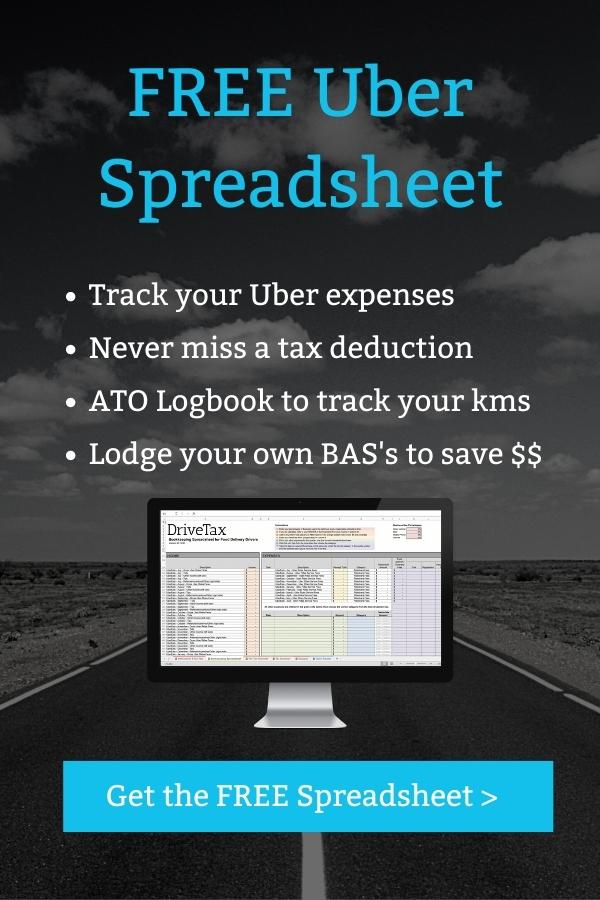
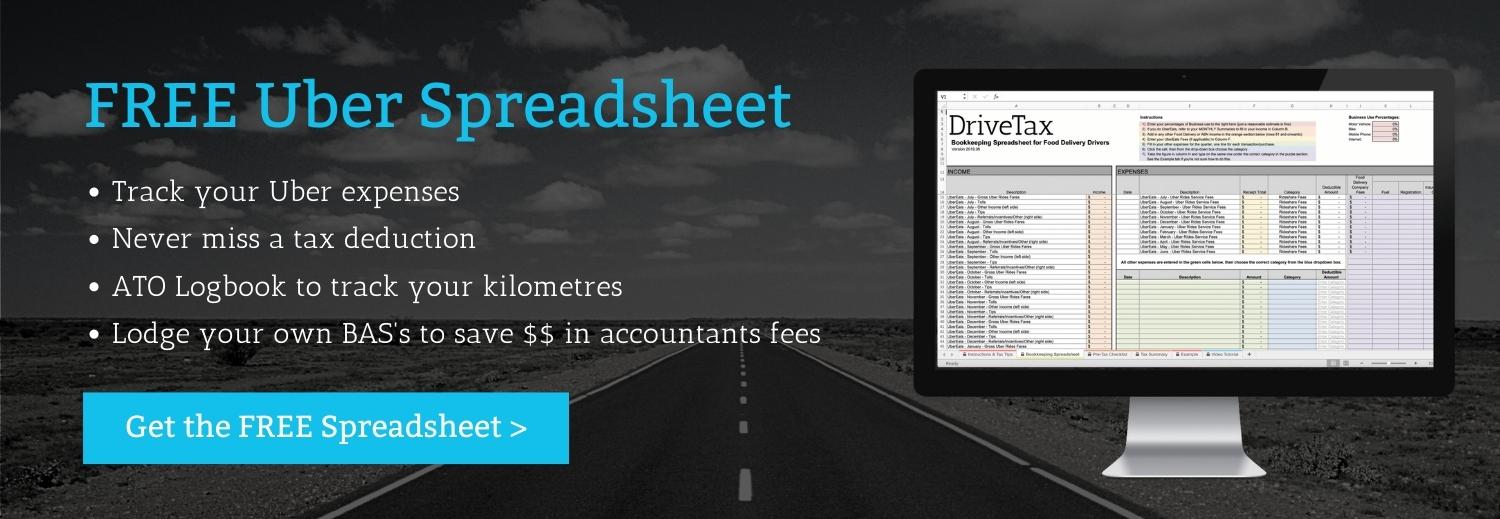
The ATO Uber Taxi Contradiction
The reason for the contradiction is because the two sets of rules, GST vs FBT, are worded slightly differently. One definition captures Uber while the other doesn’t.
This isn’t so surprising. The latest version of the GST Act was issued in 1999, and the FBT Assessment Act way back in 1986. Our tax laws were written before Uber, or even smartphones, were invented.
Those who wrote these tax law could not have imagined the invention of ridesharing, so the exact wording of our tax laws simply didn’t take Uber into account.
So what we have now is one set of legislation that refers to a ‘licensed taxi’, and another that refers to a ‘taxi service’. Back in the 80’s and 90’s we can understand these two things were one and the same, because there was only one kind of taxi. But with the invention of rideshare, the ATO suddenly finds itself in an awkward position, where Uber fits one definition but not the other, inadvertently creating a complete contradiction.
What Happened To The Level Playing Field?
From an Uber Driver’s perspective, what really stings is that all this time, the government have been preaching a ‘level playing field’.
The requirement for Uber Drivers to register for GST was justified as putting them ‘on par’ with taxi drivers, who are also forced to register. The two are direct competitors, so it’s reasonable that they both have the same taxes to contend with when setting their prices.
Then the ‘level playing field’ was pushed a step further. Some state governments began to force Uber to charge riders a levy, which would be passed on to taxi license holders. The arrival of Uber had slashed the value of their licenses, so the government decided that Uber riders should pay an additional levy to fund a compensation scheme. The fairness of this levy is a topic for another day, but my point is that the government actively intervened to correct a supposedly unfair situation.
And now we have these FBT rules that disadvantage Uber against taxis in the eyes of companies who pay for transport for their employees. They get a tax exemption for a taxi but not for Uber, so you can bet they’ll be instructing their employees that it’s taxis only from now on.
In both of these examples, the levies and the FBT rules, Uber drivers are the ultimate losers. In order to remain competitive and entice riders to keep using the Uber platform, Uber will have to reduce fares. And that means less money in driver’s pockets.
The ATO Doesn’t MAKE The Laws, They Only APPLY The Laws
So in the face of this imbalance that obviously needs correcting, what can actually be done? Well from the ATO’s end, not much.
“The ATO can only administer the law, it cannot change it“, says Tracey Dunn, Tax Specialist at RSM, in an interview with ABC News. All the ATO can do is read the tax law as it’s written, and interpret it as per legal and dictionary definitions (or six dictionaries in the case of the Uber GST decision).
As much as we all love to hate the ATO, blame doesn’t truly rest with them here.
A Fair Playing Field For Uber Drivers Is In The Hands Of The Government
So who has the power to fix this outdated mess? It is only the Federal Government that has the power to change our tax legislation.
Uber have this week expressed their disappointment with the ATO’s FBT interpretation, and stated: “we are working closely with the ATO to address this inconsistency”.
The government has been so proactive in ‘leveling the playing field’ in support of taxi drivers, so surely it’s reasonable to expect equal measures to level things the other way too?
It is the responsibility of our Government to ensure that our tax laws remain relevant as technology evolves. The transport industry has experienced incredible growth and innovation in recent years, yet is still being governed by tax laws that were written back when the only way to call a taxi was with a landline phone.
It is my hope that Uber Drivers will get to enjoy a level playing field too.
Thoughts? Questions? Leave a comment below and I’ll respond shortly! – Jess
The information in this article is general in nature and does not take into account your personal circumstances. If you’d like to know how this article applies to you, please contact us to arrange a consultation, or talk to your accountant.



About the Author – Jess Murray CPA – Uber Accountant
Jess Murray is a CPA Accountant and registered tax agent. She’s been working in personal and small business tax for 15 years, and has been specialising in tax for Australian Uber Drivers for the last 7 years as the Director of DriveTax. She also teaches an online course called Understanding Uber Taxes.
Jess is on a mission to make taxes straightforward and manageable for Uber drivers across Australia.



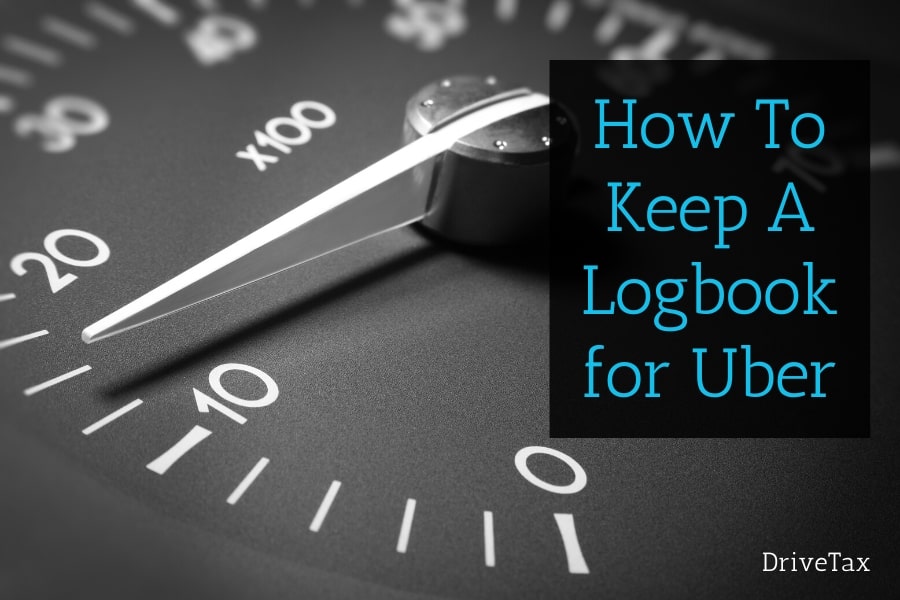
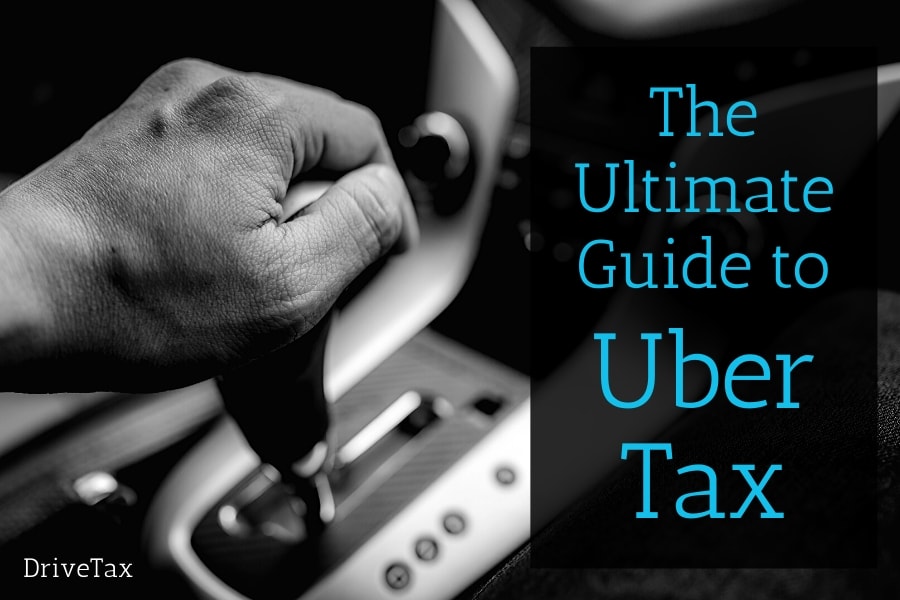
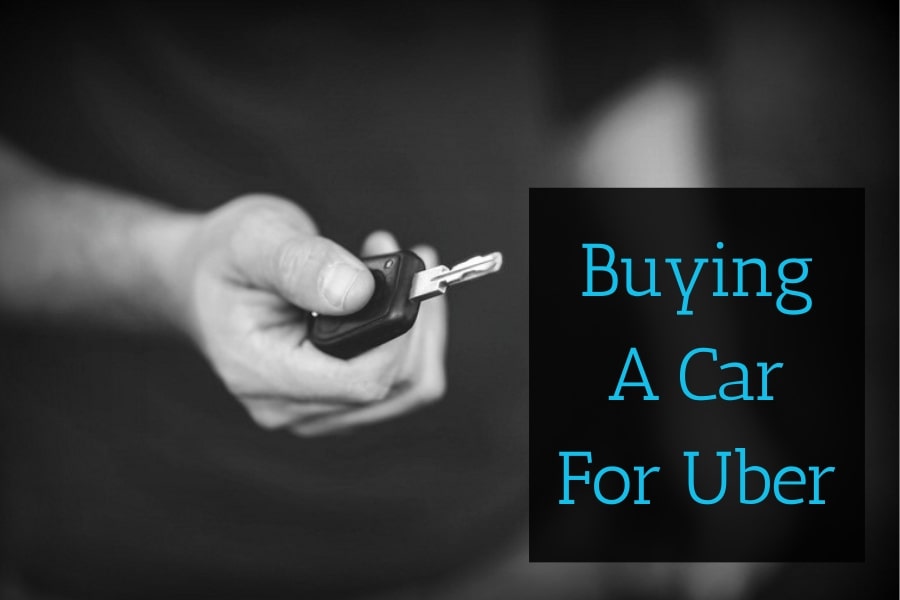
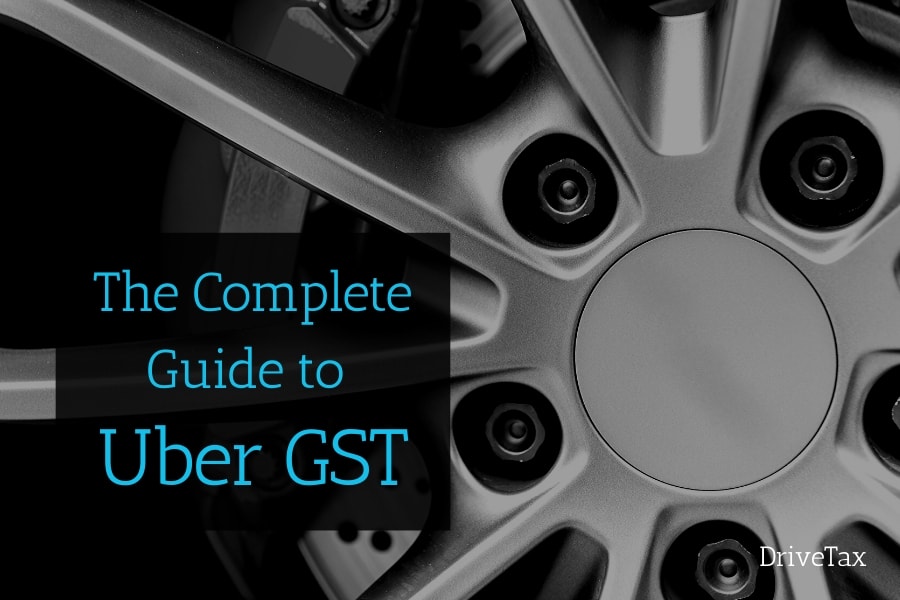
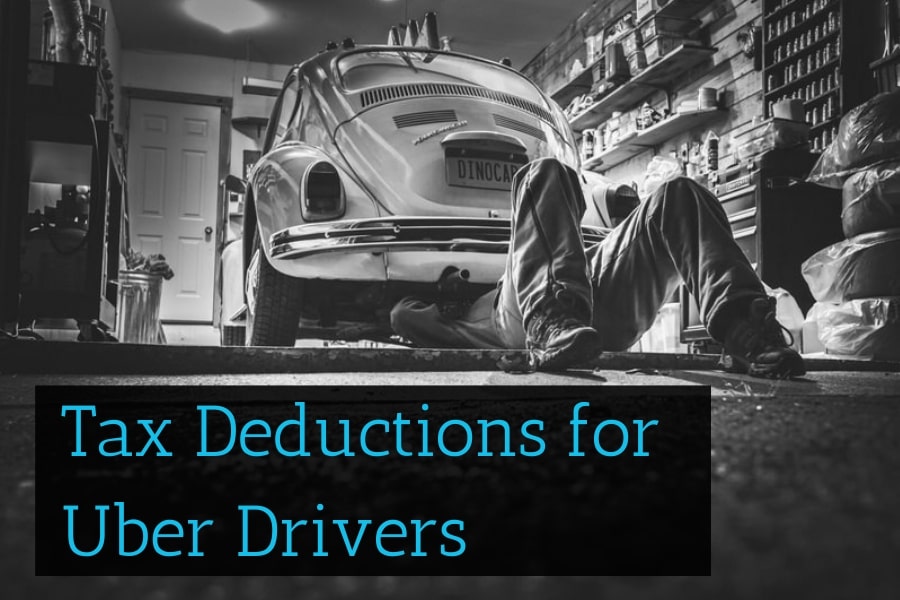
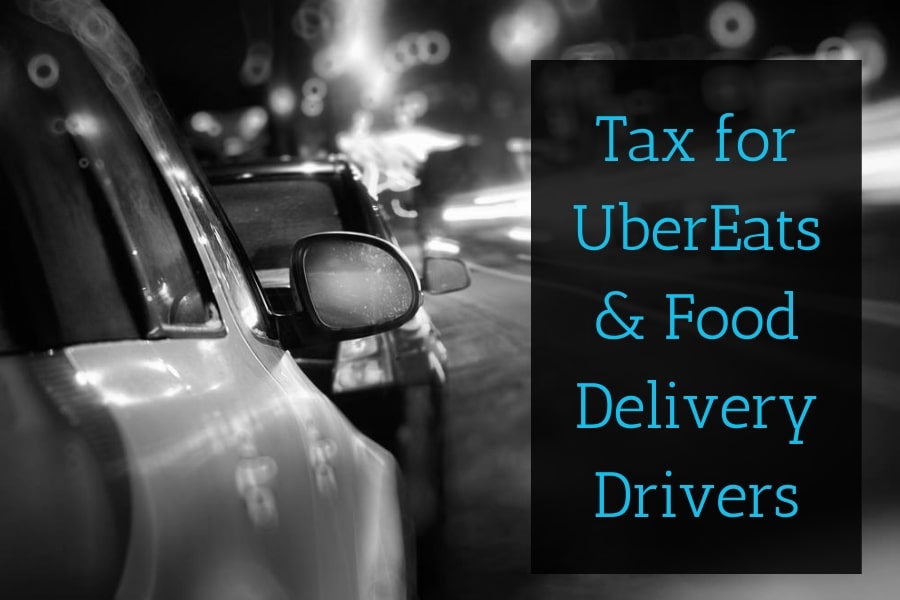
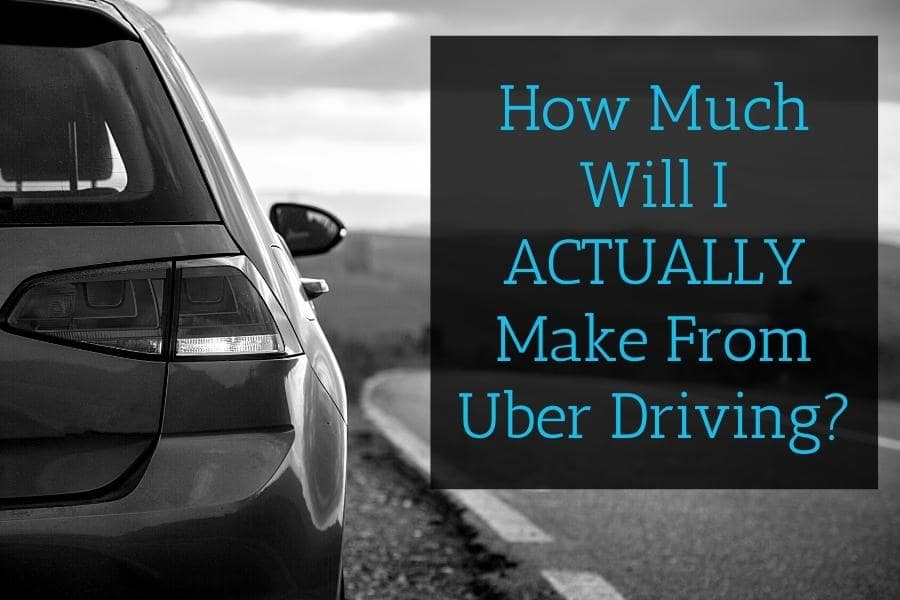
This is an insightful discussion about the complexities of classifying Uber as a taxi service under different tax laws. It’s fascinating how evolving technologies like ridesharing can challenge traditional definitions. This also highlights the importance of fair and consistent regulations, not only for services like Uber but also for traditional taxi services. For instance, Jewel Cars, a trusted taxi service operating from Brighton to London Gatwick Airport, ensures that passengers receive reliable and consistent service, backed by clear and fair regulations. As the government considers changes to tax laws, it’s crucial that all players in the transport industry, whether new or traditional, are treated fairly.
Appreciate the feedback Hamid! – Jess
Hi Jess, many thanks for the article and clarification. All Uber and Taxis are considered to be a commercial passenger vehicle (CPV). Is there a difference or is this just another contradiction is the classification. I have an Uber beacon. Does that classify as something similar to the taxi that has a lit sign on top. I think it does. Its lol! Just not on top.
Hi Ronald, your question depends on which part of the tax legislation you’re referring to. Off the top of my head I can’t think of a spot in the tax legislation that refers to a ‘commercial passenger vehicle’, but feel free to write back and if you can give me some context I can provide a proper answer! – Jess
A well written informative post. Thanks Jess
Hi Jess, a very well written and clear article outlining the battle that disrupters like UBER and others face with outmoded regulations both state and federal and not just in the Australian jurisdiction but right across the planet. If the consumer is king, which they are in my opinion, providing choice as to what service they consume and the means to underpin this choice with sensible regulation should be the norm not the exception. When I ask my riders why they choose ride-share over Taxi’s they universally like the power and convenience they now have at their fingertips with the certainty of cost previously not available to them. Hopefully the federal government, with enough lobbying, will recognise this and amend the contradiction you outlined in your article and more fairly support ride-share businesses who are providing a growing and valuable contribution to our nation.
Hi Mark, I completely agree. Capitalism and competition are essential for making sure the products and services providing the best value to consumers are the ones that rise to the top. So the success of Uber should be a clear sign to the government that they are better meeting the needs of paying customers who are voting with their dollars. It should be in the government’s interest to support the services best serving the community. We can only hope!
Hi jess
Well done on explaining this bureaucratic nonsense somewhat! It really is a mess.
I think that the industry needs to lobby HARD at changing the GST on EVERY dollar earned and bring it into line with any other business and have the $75k threshold- for the sake of keeping the GST in a charge on every fare the below $75k collections could go into a mandatory super fund for the driver ( which is not for some reason provided for in this segment ) This could be introduced for taxi drivers as well to go towards a level playing field !
You could be just he person to get this up Jess and pride over the multi million dollar super trust ! Oh yesh count me in to 😏 well done 👍
Ha! That would be something to see! I would love to see GST scrapped for Uber drivers too. It might put me out of a job, but I do think it’s incredibly frustrating that Uber drivers only earning a few hundred dollars a month have to go through all the trouble and stress of learning about GST and lodging BAS’s. But I don’t believe it will change. The requirement for Uber drivers is a trickle-on effect from the taxi laws, and for taxi drivers it is unavoidably necessary that they all be forced to register for GST. The taxi industry consists of both big taxi conglomerates and one-man owner-drivers. The government sets the same fixed fares for both, which means to have a level playing field WITHIN the taxi industry, both need to have the same GST rules. That’s why those laws exist in the first place, and they’re not going to change. So when it comes to Uber, the debate is whether Uber should have the same tax rules as their direct competitor, or the same rules as the rest of Australia…. that’s the ultimate question! – Jess
The Uber drivers only get paid direct to their bank accounts which is good for the ATO as they can check on the income easily.
Taxi drivers are often paid in cash and do not declare all their income. Harder for the ATO to check up on that. One of the taxi companies I worked with their owner drivers deleted all jobs from the new computer system every day as they had access to it and did not want the ATO to be able to access it.
The other side not all riders paid all the fare or did not pay at all so why should you have to pay tax on what you did not receive.
There are lots of things that need to be looked into to make the system fair.
Hi Chris, this is a good point, but I think the ATO do the best they can to catch the taxi drivers who cheat the system with cash. The ATO have specialist audit systems just for taxi drivers, where they compare the average rate of earnings per km for every taxi driver, and audit anyone who has lower average earnings. It’s not a perfect system, but they do try! – Jess
Hi Jess, so therefore a taxi with a light on top but can be ordered via an app, ie. 13 cabs, if they are ordered by app and not by the traditional methods of hailing or phoning, that trip is not claimable against FBT? Certainly not a level playing field… Regards G
Hi Geoffrey, the GST laws refer to ‘taxi for public hire’ (which Uber is), while the FBT laws refer to ‘licenced taxi’ (which Uber is not). So for the FBT laws it’s not about how they are hailed, but about whether they are licenced. Frustrating! – Jess
Well it is not a surprise that our tax laws haven’t kept up with technology. Lots of areas of policy in general are inadequate., you only need to look at hacking threats on software to realize we are in catch up mode as technology moves faster than security. Look its another kick in the guts for Uber, who have immeasurably improved transportation standards. This level-playing field idea is laughable, when you consider the advantages taxis have with access to passengers in busy areas. Taxi ranks should also be available to Uber drivers in a level plating field scenario. Uber drivers have a challenge to collect passengers legally. When passengers exit a restaurant or bar (for example) they order an Uber and expect to be collected from where they stand, often in a No Standing zone. If we were to drive past every pickup, find a legal parking spot (not easy in a popular area)and then phone/text the passenger and tell them where to meet us- we’d probably get a spike in cancellations. Taxis however, enjoy prime position outside these dining precincts as well as airports and sports events.
Hi David, you’re right, and it’s hard to see how Uber are ever going to overcome that advantage taxis have just for having been first to market. We have to hope that the government takes this into account and will at least try to play fair in every other way they can, such as for these tax laws! – Jess
Uber is itself not being even handed with its drivers as it services charges are different set at 27% for all drivers who work for them after April 2017 & about 20% for those who started earlier.
They need to get their own house in order & treat all drivers the same, they also need to lower their service charges to compete with other ride share companies
Hi Derek, you’re right that it needs to come from within as well. At the end of the day competition will always win, so it’s great that Bolt, Ola, Did and others are there to give Uber Drivers more options. If Uber begin to lose drivers to these other companies they’ll realise they have to make changes. – Jess
Perfect summary of some of the legislative inconsistencies faced by ride share operators and most likely other successful disrupters of traditional industries.
It’s imperative that Uber and the other industry players, Ola and DiDi initiate a high-level political lobbying program that highlights the need for rapid change and the benefits that will accrue to the millions of Australians who provide and utilise its services.
Hi Christopher, I do agree. I was glad to see in the news articles I read that Uber appear to have lobbyists and experts working with the ATO, as they do of course have a vested interest. I hope they can make an impact! – Jess